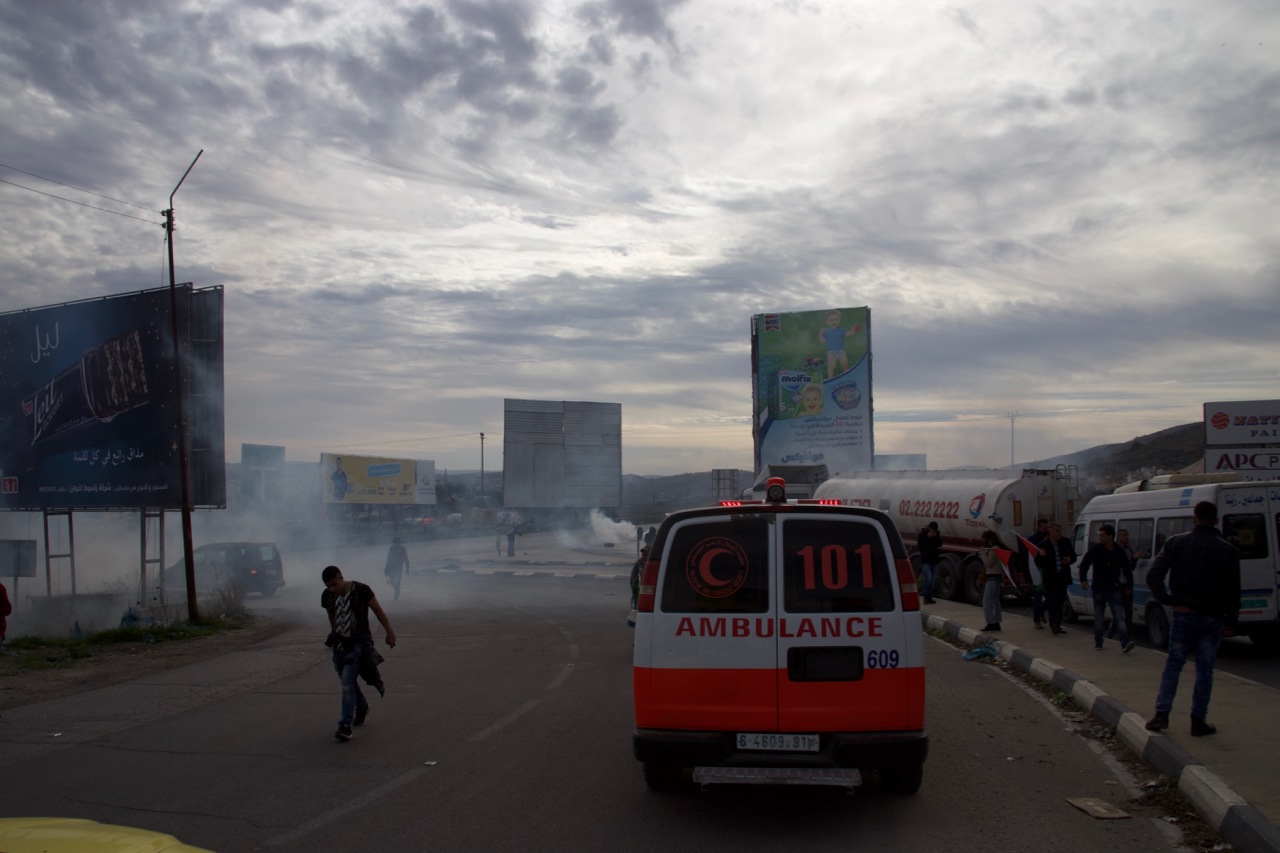Tag: Al Quds
-

We Are Our Mountains
18 November 2023 | International Solidarity Movement | Al-Quds “Welcome to Little Little Armenia”, we hear as we walk past the barbed wire and stone barricades in the Christian section of the Old City of Al-Quds (Jerusalem). Armenian flags fly from atop walls and mounds of rubble. This land, the size of about a quarter…
-

Demonstrators in Nablus met with violence by the Israeli Occupation forces
Protestors marched from the city center of Nablus to the Huwwari Checkpoint only to be met with brute force by the Israeli Occupation Forces.
-

A call for solidarity from Kufr Aqab
24st November 2017 | International Solidarity Movement, Nablus team | Nablus, Occupied Palestine Six residential buildings in the Kufr Aqab neighbourhood in Jerusalem are currently facing demolition orders by Israeli authorities. The neighbourhood is the northernmost part of Jerusalem but is separated from the rest of Jerusalem by the Apartheid Wall. Most of the residents…
